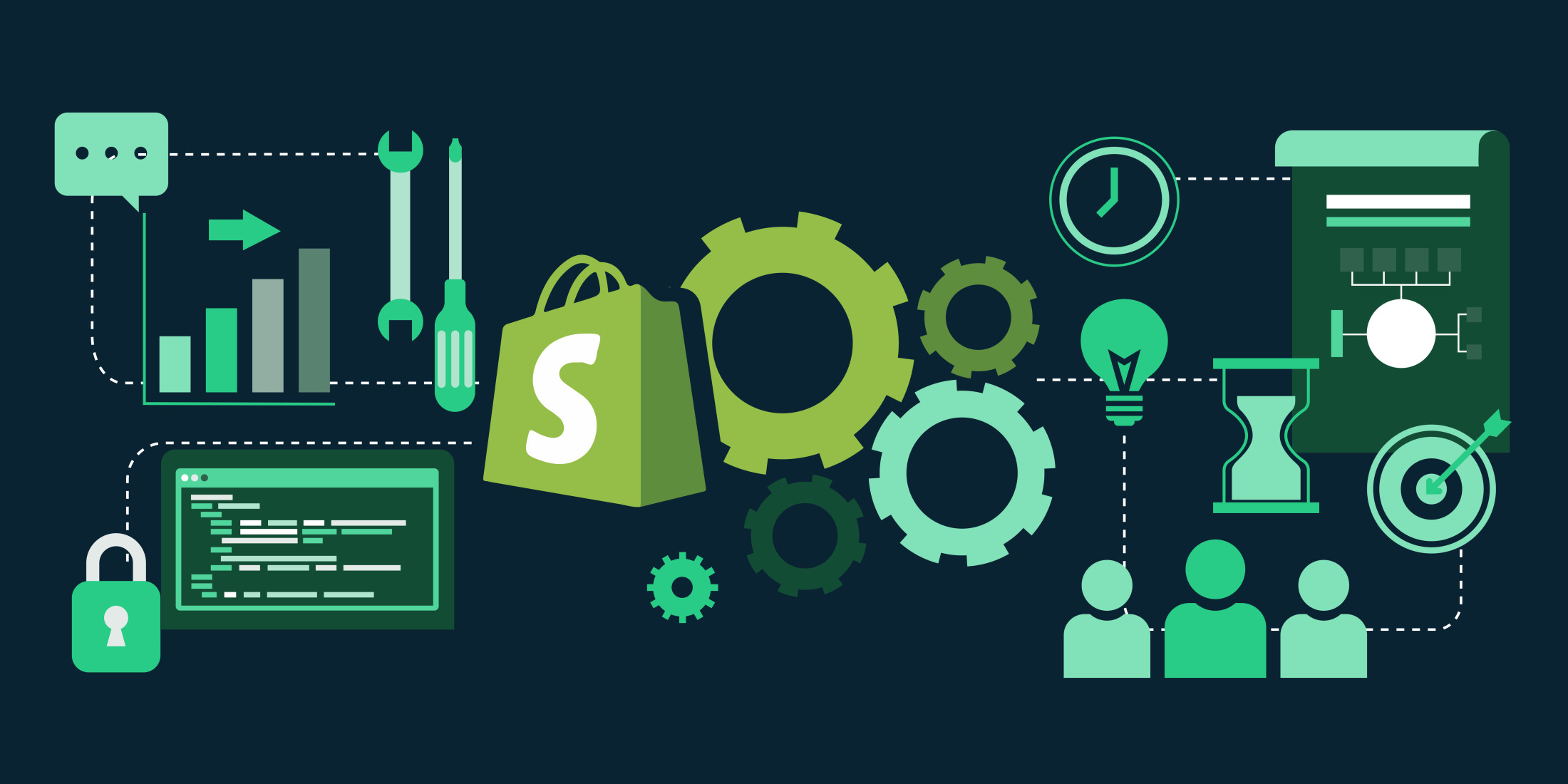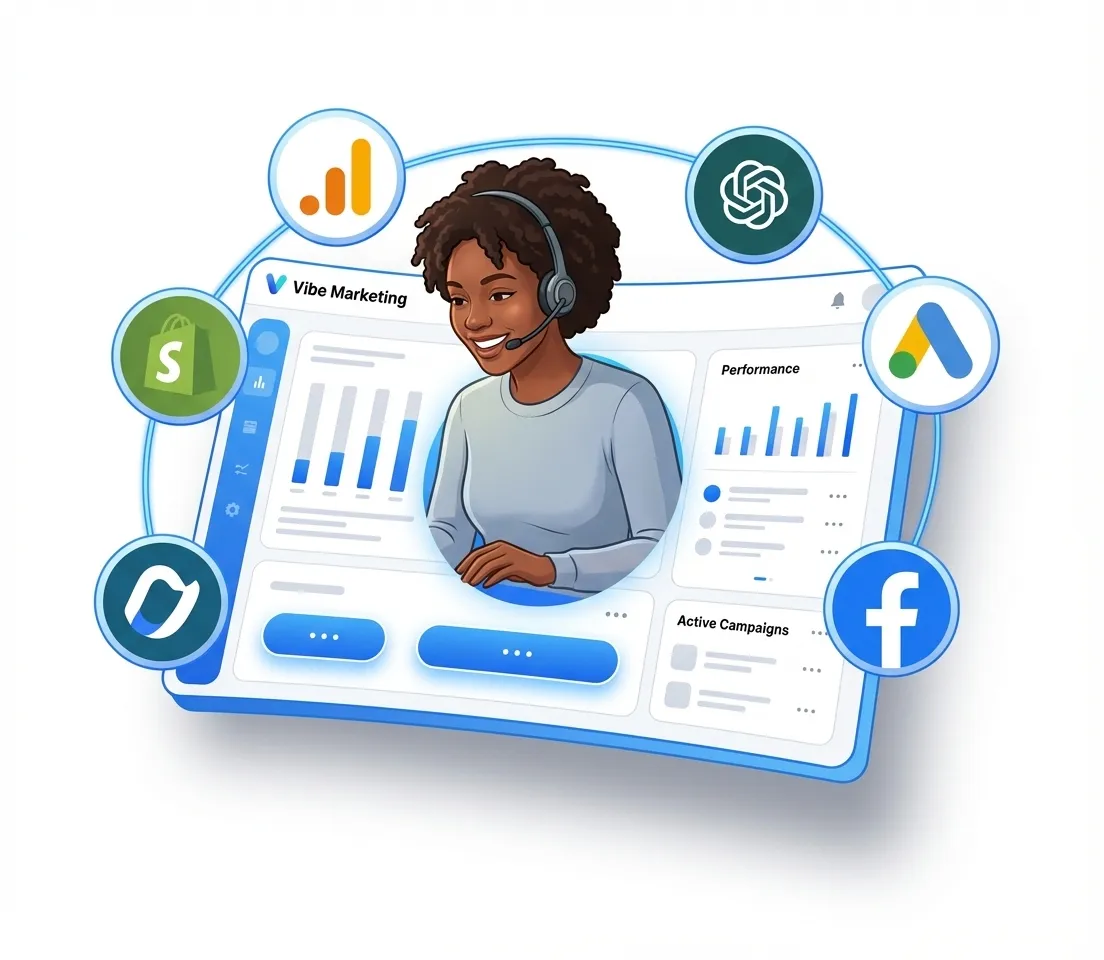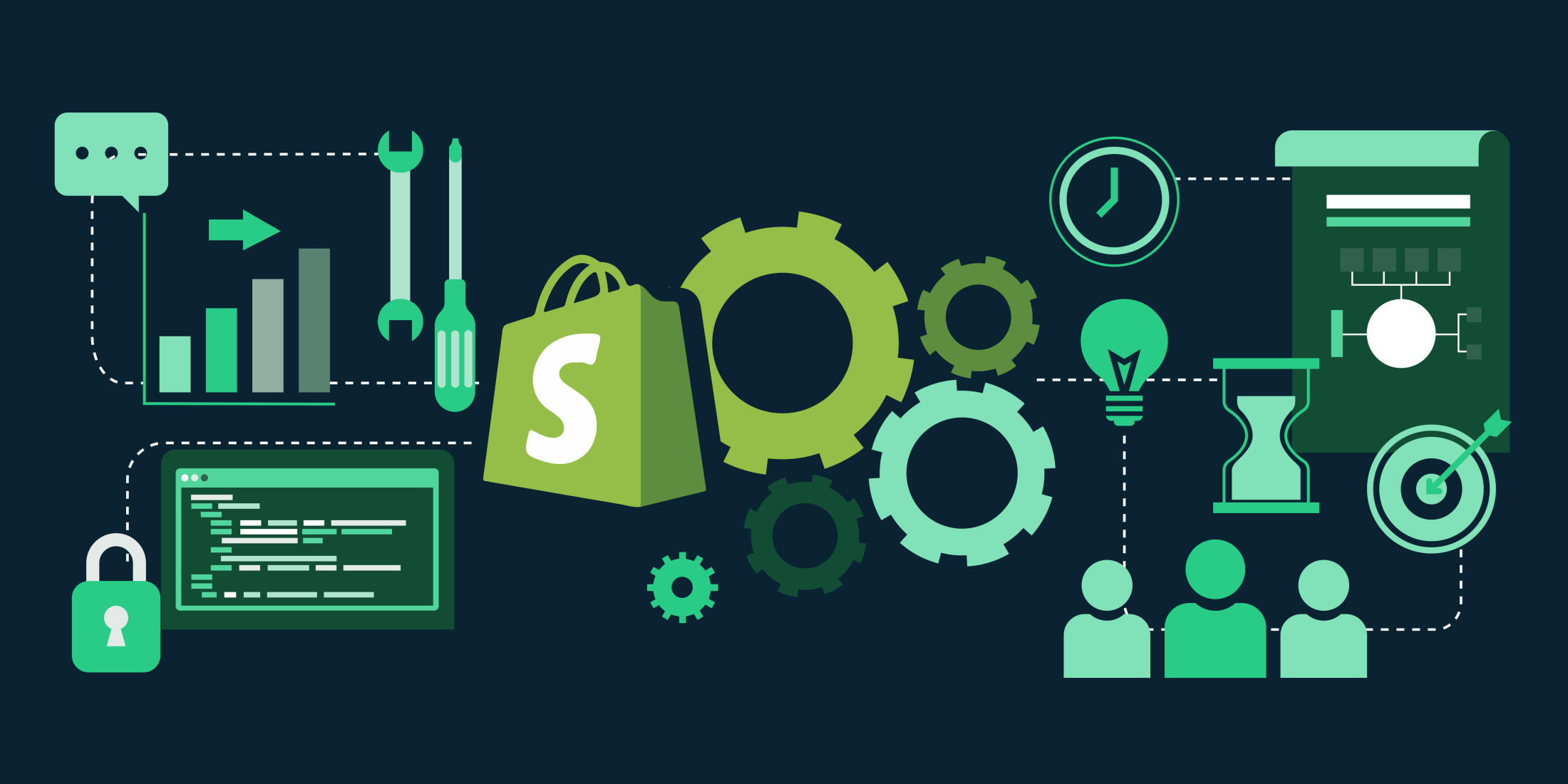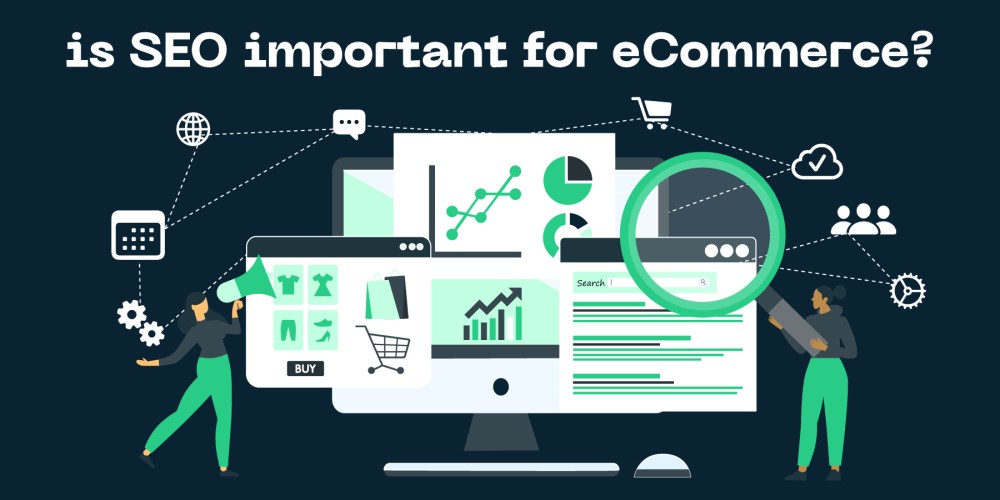Top AI Agents for Shopify Stores to Improve Your Sales

Key Takeaways
- ConvertMate is a top choice for eCommerce brands looking to boost their sales with AI-driven marketing solutions.
- AI agents can help improve your Shopify store by optimizing conversion rates, enhancing SEO, and automating marketing strategies.
- Integrating AI with Shopify can significantly boost your sales and streamline store operations.
- Discover the best AI tools for Shopify to increase sales and improve store performance.
- Stay ahead of the curve by preparing your Shopify store for the future of AI in eCommerce.
Understanding AI Agents for Shopify
What are AI Agents?
In the realm of ecommerce, AI agents are transforming the way businesses interact with their customers and manage their operations. These sophisticated software entities are designed to perform specific tasks, leveraging artificial intelligence to automate processes, provide insights, and enhance customer experiences. For Shopify store owners, AI agents can serve as invaluable tools that streamline everything from customer service to inventory management. By automating repetitive tasks and crunching vast amounts of data, AI agents empower store owners to focus more on strategic decisions and less on operational details.
Understanding the potential of AI agents in a Shopify context involves recognizing their capacity to personalize customer interactions. When deployed effectively, these agents can analyze customer behavior and preferences to deliver tailored recommendations and promotional offers. This level of personalization not only improves the shopping experience but also boosts conversion rates by making customers feel understood and valued. For ecommerce marketers, leveraging AI agents means creating a more engaging and responsive online store that adapts to the unique needs of each visitor, ultimately driving more sales.
AI agents also play a crucial role in optimizing backend processes. They can forecast demand, manage inventory levels, and even automate pricing strategies based on real-time market conditions. For Shopify store owners, this means having a more agile and responsive business model that can quickly adapt to changing consumer trends and market dynamics. The adoption of AI agents is not just about keeping up with technological advancements but about gaining a competitive edge in an increasingly crowded ecommerce landscape. By implementing these intelligent systems, storeowners are positioned to not only meet but exceed customer expectations, paving the way for sustained growth and success.
How AI Agents Enhance Shopify Stores
In the rapidly evolving world of e-commerce, AI agents are proving to be invaluable for Shopify store owners who are keen on enhancing their sales performance. These intelligent tools can perform a multitude of tasks, from personalizing customer interactions to automating various aspects of store management. By implementing AI agents, store owners can offer a more tailored shopping experience, leading to increased customer satisfaction and, ultimately, higher conversion rates. With the ability to analyze large datasets and predict consumer behavior, AI agents provide insights that help in optimizing product offerings and marketing strategies. As AI technology continues to advance, it is becoming an essential component for those looking to stay competitive in the e-commerce landscape.
One of the major advantages of using AI agents is their capability to facilitate personalized marketing efforts. By analyzing customer behavior and preferences, AI agents can create targeted marketing campaigns that speak directly to individual consumer needs. This level of personalization not only enhances the shopping experience but also builds customer loyalty. Moreover, AI agents can manage customer interactions through chatbots, providing instant responses and assistance. This not only improves the customer service experience but also frees up human resources to focus on more complex tasks.
Another significant benefit of AI agents in Shopify stores is their role in inventory management and pricing strategies. Through predictive analytics, AI agents can forecast demand trends, ensuring that popular products are always in stock and reducing the likelihood of overstocking less popular items. Additionally, AI can dynamically adjust pricing based on market trends, competitor prices, and consumer demand, optimizing profitability. For e-commerce businesses eager to scale efficiently, these AI-driven capabilities offer a strategic advantage. By leveraging AI agents, Shopify store owners can streamline operations, enhance customer engagement, and ultimately drive sales growth.
Key AI Agents to Consider
AI for Conversion Rate Optimization
In the competitive world of ecommerce, leveraging AI for Conversion Rate Optimization (CRO) can be a game-changer for Shopify store owners seeking to improve their sales. AI agents can transform how you approach customer interactions by personalizing user experiences, predicting customer behavior, and streamlining marketing efforts. These agents work by analyzing vast amounts of data to identify patterns and trends that are often missed by traditional analytics tools. By effectively deploying AI, you not only enhance the shopping experience but also increase the likelihood of converting casual browsers into loyal customers.
One of the key AI agents to consider is a recommendation engine, which personalizes the shopping journey for each visitor. By analyzing customer data such as past purchases, browsing history, and even real-time behavior, these engines suggest products that are most likely to catch a customer’s interest. Such personalized recommendations can significantly increase average order value and customer retention rates, making them indispensable for boosting sales on Shopify. Moreover, AI-driven chatbots can provide immediate assistance, answer queries, and even guide customers through their purchasing decisions, thereby reducing bounce rates and cart abandonment.
Another essential AI tool for CRO is predictive analytics, which helps you anticipate customer needs and optimize pricing strategies. By utilizing machine learning algorithms, predictive analytics tools analyze historical data to forecast future shopping patterns and behaviors. This insight allows ecommerce marketers to tailor their campaigns more effectively, ensuring that the right message reaches the right audience at the right time. Implementing these AI agents can lead to more informed decision-making, ultimately driving higher conversion rates and increased revenue for your Shopify store. Embracing AI for CRO is not just about keeping up with technology trends; it is about fundamentally enhancing your business strategy to meet the evolving expectations of today's consumers.
AI for SEO Enhancement
In the dynamic world of e-commerce, particularly for Shopify store owners, leveraging AI for SEO enhancement has become a game-changer. AI agents, powered by machine learning and data analytics, offer a strategic advantage by optimizing store visibility and attracting the right audience. One of the key benefits is their ability to analyze vast amounts of data to identify trends, perform competitor analysis, and uncover valuable keywords that can significantly boost search engine rankings. This data-driven approach enables store owners to refine their SEO strategies with precision, ensuring their products are seen by potential customers actively searching for them.
Among the AI agents to consider, those utilizing natural language processing (NLP) can be particularly beneficial. NLP-powered tools can enhance a Shopify store's content by ensuring it resonates with target audiences, thereby improving organic search visibility. These AI agents can also help in creating optimized meta descriptions and product tags, which are crucial for driving traffic. By automating these tasks, store owners can focus on other critical aspects of their business, all while maintaining a competitive edge in SEO performance.
Moreover, AI agents that provide predictive insights are worth considering for e-commerce businesses aiming to stay ahead of the curve. These agents can predict future search trends and customer behaviors, allowing marketers to adapt their strategies proactively. By anticipating what potential customers are likely to search for, Shopify store owners can optimize their content and product offerings accordingly, ultimately leading to higher conversion rates. In essence, integrating AI for SEO not only improves visibility but also enhances the overall shopping experience, translating to improved sales performance for Shopify stores.
Integrating AI with Shopify
Best Practices for Integration
Integrating AI with Shopify can be a game-changer for ecommerce store owners looking to optimize their sales funnel. When done right, it can enhance customer experience, streamline operations, and substantially boost conversion rates. However, to achieve these benefits, there are several best practices to consider. First and foremost, it's crucial to have a clear understanding of your objectives. Are you looking to personalize the shopping experience, improve customer support, or enhance inventory management? Knowing your goals will help you select the right AI tools and features that align with your business needs. Additionally, seamless integration with your existing Shopify setup is vital. Ensure that the AI solutions you choose can easily connect with your current systems without disrupting your operations.
Another essential practice is to focus on data quality and management. AI thrives on accurate and relevant data to produce effective insights and recommendations. As an ecommerce store owner, prioritize data cleanliness and consistency to ensure your AI applications perform optimally. This might involve regular data audits and leveraging data enrichment tools. Furthermore, don't overlook the power of continuous learning and adaptation. AI technologies are constantly evolving, and your strategy should be dynamic enough to incorporate new advancements and methodologies. Regularly assess the performance of your AI tools and make adjustments as needed to ensure they continue to meet your business goals.
Finally, always keep the customer at the center of your integration strategy. Use AI to enhance customer engagement by providing personalized recommendations, faster response times, and a more intuitive shopping experience. AI should not just automate processes but also add value to the customer journey, making it smoother and more enjoyable. Transparency is key; customers appreciate knowing how AI is being used to improve their experience. By prioritizing these best practices, you can successfully integrate AI into your Shopify store, setting the stage for improved sales and customer satisfaction.
Common Integration Challenges
Integrating AI with Shopify can present several challenges, especially for ecommerce store owners and marketers eager to harness AI's potential for boosting sales. One of the most common challenges is the technical complexity involved in setting up and managing AI tools. Many store owners may not have prior experience with AI technologies, making the initial integration process daunting. The complexity can stem from needing to tailor AI solutions to specific business needs, which often requires a deep understanding of both the AI tool and the Shopify platform. This complexity might lead to a reliance on technical support or third-party developers, potentially increasing costs and implementation time.
Another significant challenge is data management. AI tools are only as effective as the data they are fed, and for ecommerce businesses, this means having robust systems in place to collect and manage customer data. Many businesses may struggle with data silos, where information is scattered across various systems, making it difficult for AI tools to access and analyze it effectively. This can hinder the AI's ability to provide meaningful insights or automate processes that could lead to increased sales. To overcome this, businesses need to invest in integrated data management systems that ensure seamless data flow between their Shopify store and the AI tools they employ.
Finally, there's the challenge of change management within the organization. Introducing AI tools can require significant changes in business processes and workflows, which can be met with resistance from staff accustomed to traditional methods. Ensuring that the team is adequately trained and comfortable with using AI technologies is crucial for successful integration. Additionally, it's essential for store owners and marketers to set realistic expectations regarding the outcomes of AI integration. While AI can provide significant benefits, it's not a magic bullet, and its effectiveness depends on how well it's implemented and the quality of the data it utilizes. By addressing these challenges proactively, businesses can better position themselves to leverage AI agents effectively, driving higher sales and conversion rates on their Shopify stores.
Measuring the Impact of AI Agents
Key Performance Indicators
When evaluating the performance of AI agents in your Shopify store, it is crucial to establish measurable Key Performance Indicators (KPIs) that can give you a clear picture of their impact on sales and overall business performance. These KPIs serve as benchmarks that help you assess how effectively these AI tools are contributing to your conversion rate and customer engagement. Common KPIs to consider include conversion rate, average order value, customer retention rate, and cart abandonment rate. By analyzing these metrics, you can determine whether the AI agents are meeting your business objectives and delivering a return on investment.
It is essential to tailor these KPIs to align with your specific sales goals and marketing strategies. For instance, if you aim to increase customer retention, an AI agent that provides personalized shopping experiences might be evaluated based on KPIs such as repeat purchase rate or customer lifetime value. Conversely, if your focus is on acquiring new customers, you might prioritize measuring the AI agent’s impact on conversion rates or lead generation. This tailored approach ensures that you are making data-driven decisions that optimize the performance of your AI tools.
Moreover, regularly reviewing these KPIs will help you identify any areas where AI agents can be further optimized or adjusted to better support your business. For example, if you notice a high cart abandonment rate despite employing an AI-driven recommendation engine, you may need to reassess the algorithms or the timing of your prompts. Consistent monitoring allows you to stay agile, adapting your strategies and tools based on real-time insights. Ultimately, the thoughtful measurement of KPIs will empower you to leverage AI agents effectively, driving sustainable growth and enhancing the overall shopping experience for your customers.
Real-life Success Stories
In the rapidly evolving landscape of ecommerce, the role of AI agents has become pivotal in driving sales and enhancing customer experiences. Real-life success stories provide invaluable insights into how these intelligent tools can make a significant impact. For instance, one Shopify store specializing in hand-crafted jewelry leveraged an AI-powered chat agent to engage customers more effectively. By using natural language processing, the AI was able to answer customer inquiries around-the-clock, leading to a 30% increase in conversion rates within just a few months. This example illustrates how AI can not only take over repetitive tasks but also enhance the personalization and responsiveness of customer service, turning casual browsers into loyal buyers.
Another compelling success story comes from a clothing retailer that adopted AI agents for personalized product recommendations. By analyzing customer behavior and preferences, the AI was able to suggest products that resonated with individual shoppers, leading to an impressive uplift in average order value. The retailer reported a 25% increase in sales after implementing the AI-driven recommendation engine. This demonstrates how well-integrated AI solutions can analyze vast amounts of data to offer tailored experiences, effectively bridging the gap between what customers want and what they might not have considered purchasing otherwise.
Furthermore, a tech gadget store experienced a dramatic shift by utilizing AI for inventory management. Before implementing AI solutions, the store often faced issues with overstocking and stockouts. The AI system provided predictive analytics that optimized stock levels according to customer demand patterns, leading to a more efficient supply chain. As a result, the store not only cut down on excess inventory costs but also increased sales by ensuring popular items were always available. This showcases how AI can extend beyond customer interaction to streamline back-end operations, ultimately driving sales and improving overall business efficiency.
Future of AI in eCommerce
Emerging Trends
The future of AI in eCommerce is shaping up to be transformative, providing online retailers, especially those using platforms like Shopify, with powerful tools to enhance customer experience and boost sales. As AI technologies evolve, they are becoming more sophisticated and capable of understanding and predicting customer behaviors with incredible accuracy. This allows marketers and store owners to tailor their strategies more effectively, ensuring the right products are marketed to the right people at the right time. For instance, AI can analyze vast amounts of customer data to identify purchasing patterns and preferences, offering personalized recommendations that increase the likelihood of conversion and customer satisfaction.
One of the most significant emerging trends in this space is the use of AI-driven chatbots and virtual shopping assistants. These tools are critical in providing real-time customer support and engagement, which are key components in closing sales and enhancing the shopping experience. Shopify store owners can leverage these AI agents to offer instant responses to customer queries, provide detailed product information, and assist in decision-making processes. By doing so, customers are more likely to complete their purchases, reducing cart abandonment rates and increasing overall sales. Moreover, AI agents can operate around the clock, ensuring that customers worldwide are supported no matter their time zone.
Another promising trend is the integration of AI in supply chain and inventory management. AI systems can predict demand, optimize stock levels, and automate reordering processes, making inventory management more efficient and reducing the risk of stockouts or overstocking. For Shopify merchants, this means less time spent on logistics and more focus on strategic growth initiatives. This capability not only enhances operational efficiency but also ensures that customers have a seamless shopping experience with minimal disruptions due to product availability issues. Implementing AI solutions in these areas not only meets the current needs of eCommerce but also positions businesses to adapt quickly to future changes in consumer behavior and market dynamics.
Preparing Your Store for AI Evolution
As ecommerce continues to evolve, the integration of artificial intelligence is not just a trend but a transformative shift that is reshaping the digital retail landscape. AI in ecommerce is providing store owners and marketers with unprecedented opportunities to enhance user experiences, streamline operations, and most importantly, boost conversion rates. For those managing Shopify stores, leveraging AI agents can offer a significant competitive edge. These tools are designed to analyze customer data, predict purchasing behaviors, and tailor marketing efforts with remarkable precision. By preparing your store for this AI evolution, you are not only keeping pace with technological advancements but also positioning your business to thrive in a data-driven market environment.
AI’s potential in ecommerce extends beyond automated customer service and personalized recommendations. It encompasses a spectrum of applications that can substantially increase operational efficiency. For instance, AI agents can optimize inventory management by predicting stock levels based on customer demand trends, thus reducing overhead costs and preventing stockouts. Additionally, AI-driven analytics can provide insights into customer behaviors that were previously difficult to discern, enabling more effective marketing strategies and product offerings tailored to specific customer segments. This level of personalization fosters a more engaging shopping experience, ultimately leading to increased customer loyalty and higher sales conversions.
Implementing AI in your Shopify store requires a strategic approach. Start by identifying areas within your store operations that could benefit most from AI integration. Consider utilizing AI agents that facilitate efficient data management, as they will help you understand and respond to customer needs in real-time. Training your team to work alongside AI tools is equally important; this will ensure that you can leverage these technologies to their full potential. As you embrace AI, remember that its success depends on a synergy between technology and human oversight. By carefully orchestrating this balance, you can harness the power of AI to transform your store’s operations and drive substantial growth.
FAQs
What are AI agents and how can they enhance my Shopify store's sales?
AI agents are sophisticated algorithms designed to automate various marketing strategies, improve customer interactions, and enhance personal shopping experiences on your Shopify store. By analyzing data and customer behavior, AI agents can significantly increase conversion rates by providing personalized product recommendations, optimizing pricing strategies, and automating customer service.
Which AI agents are best for improving conversion rates specifically on Shopify?
Top AI agents for Shopify stores include those that automate email marketing, provide intelligent chatbot services, and optimize product recommendations. Tools like Klaviyo for email marketing automation and Drift for conversational marketing are popular choices. ConvertMate can integrate seamlessly with these platforms to further enhance their capabilities.
Can AI agents help with SEO optimization on my Shopify store?
Yes, AI agents can greatly assist with SEO optimization by analyzing keyword trends, managing meta tags, and optimizing content for search engines. This automation helps improve your store's visibility and search ranking, driving more organic traffic to your site.
How can AI agents assist in product feed optimization for better sales?
AI agents can automate the collection and organization of product data, ensuring that feeds are accurate and up-to-date. By optimizing product titles, descriptions, and images, AI agents help improve the attractiveness of your product listings, which can lead to increased click-through rates and sales. ConvertMate offers integration options to facilitate this automation process.
Are there AI agents that can help reduce cart abandonment in Shopify stores?
Yes, AI agents like Rejoiner and CartStack are designed to minimize cart abandonment by sending personalized follow-up emails and notifications to customers who have left items in their cart. These tools use behavior analysis to improve conversion rates by gently nudging potential buyers to complete their purchase.
How do AI agents improve customer service on Shopify stores?
AI agents enhance customer service by providing 24/7 support through chatbots, handling common queries, and directing complex issues to human agents. This ensures that your customers receive timely and accurate support, improving their shopping experience and increasing the likelihood of conversion.
What role does machine learning play in AI agents for Shopify stores?
Machine learning is a core component of AI agents, enabling them to learn from data patterns and improve over time. In the context of Shopify stores, machine learning allows AI agents to better predict customer preferences, optimize marketing strategies, and adapt to changing market trends, thereby continually enhancing sales performance.



